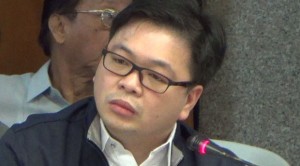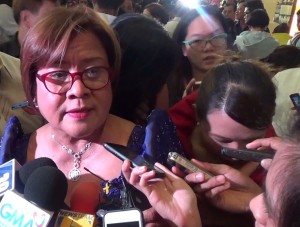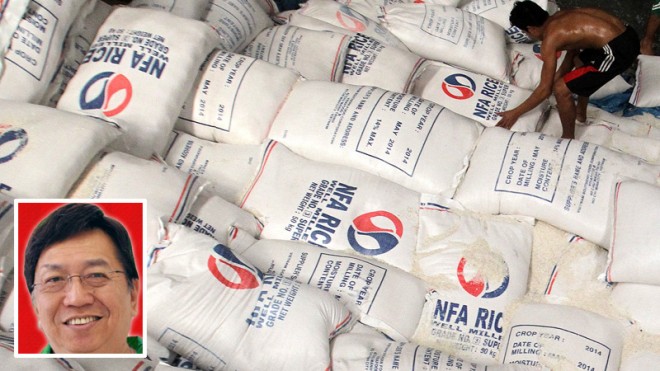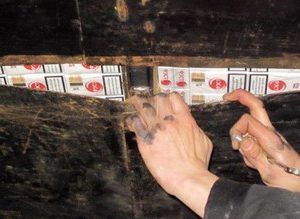Reduction in Piracy Can Create More Jobs
BANGALORE: Taking advantage of lax laws governing piracy and smuggling, many people who deal in counterfeit items manage to continue their business after paying fines, said P C Jha, former chairman of Central Board of Excise and Customs and now a member of the Federation of Indian Chambers of Commerce and Industry. Speaking at a seminar on ‘Curbing Counterfeiting and Smuggling’ organised by FICCI, Jha said a 10 per cent reduction in piracy in the IT sector would lead to the creation of 1 lakh jobs, according to estimates. “The laws provide for a two year-jail term or a maximum of `2 lakh fine. When a person makes crores from piracy, `2 lakh is peanuts. Also cases go on for ten years or so. The laws are not strict enough,” he said.
Lear MoreBill defines smuggling as economic sabotage
The partylist group Abono has filed a bill to fight the smuggling of agricultural products, making the illegal activity a form of economic sabotage. Rosendo So, Abono chair, said House Bill No. 4767, known as the “Direct and Technical Smuggling as Economic Sabotage Act of 2014,” would help local producers and manufacturers compete and eliminate unfair competition. “Imagine the taxes lost because of smuggling and its impact on local farmers who cannot compete with the low prices of smuggled goods,” said So, who is also president of Samahang Industriya ng Agrikultura. So, citing information gathered by Abono, said a total of P65-billion worth of agricultural products like rice, pork and poultry, were smuggled into the country in 2012 and 2013. “Considering the far-reaching effect of smuggling on the Philippine economy and on Filipinos regardless of their socio-economic status, smuggling should be considered a form of economic sabotage,” Abono Representatives Francisco Emmanuel Ortega and Conrado Estrella III said in the bill’s explanatory note.
http://newsinfo.inquirer.net/626665/bill-defines-smuggling-as-economic-sabotage
Lear More
Monopoly, not smuggling, is rice trader’s charges
Suspected rice smuggler David Bangayan, also known as David Tan, will not be charged with smuggling, but with monopoly of supply, it was learned Tuesday. “He could only be charged with monopoly in restraint of trade for using farmers’ cooperatives as dummies to secure importation permits,” sources from the National Bureau of Investigation told the Inquirer. Bangayan, who insisted he was not David Tan, was positively identified by leaders of farmers’ cooperatives, who served as his dummies and who later turned witnesses for the government during the investigation, as “one and the same person.” The sources also said that cases would be filed before the Office of the Ombudsman this week.
http://newsinfo.inquirer.net/626750/monopoly-not-smuggling-is-rice-traders-charges
Lear MoreSpot the fake apps
Dangerous, fake smartphone apps lurk in app stores
Hackers are making fake apps to scam you, steal your personal information and rip you off. The fake apps appear in the app stores and are disguised to appear like the real thing. The danger is bigger than just wasting a couple bucks on an app that doesn’t work. They could hack your Facebook, for example, or Twitter,” said Orlando tech expert Carlos Carbonell of Echo Interaction Group. “They can also access banking info.”
http://www.news4jax.com/news/spot-the-fake-apps/27321370
Lear MoreBetter steps required to curb smuggling: Rajnath Singh
Government on Tuesday said current measures are not enough and better steps are required at international borders to prevent smuggling of narcotics. Home Minister Rajnath Singh informed the Lok Sabha that while smuggling of narcotics has been taking place for a long time, government keeps taking steps to check the trend. The steps include fencing of border and flood lighting. He said the present steps are not enough and still better measures are required to curb smuggling.
Lear More
De Lima appeals oil smuggling case ruling
The government would seek reconsideration of the Court of Appeals’ decision dismissing the P6-billion smuggling charges filed against a Davao City-based oil firm, its president and customs broker, Justice Secretary Leila de Lima said on Sunday. “We will definitely appeal that decision. I will ask the Office of the Solicitor General to file a motion for reconsideration,” De Lima said in a text message.
Last Friday, the Court of Appeals Former Special 10th Division reversed the Justice Secretary’s decision to indict Phoenix Petroleum Philippines Inc., its president and chief executive officer Dennis Uy and customs broker Jorlan Cabanes, for violations of the Republic Act No. 1937, or the Tariff and Customs Code of the Philippines (TCCP). The appeals court ruled that Uy and Cabanes were deprived of due process when De Lima set aside the earlier resolution issued by Justice Undersecretary Francisco Baraan III that recommended the dismissal of the case against the respondents.
http://newsinfo.inquirer.net/626048/de-lima-appeals-oil-smuggling-case-ruling
Lear MoreFrom Iran and Afghanistan: Smuggled POL products continue to flow into Pakistan
ISLAMABAD: The Federal Board of Revenue (FBR) has conceded that despite its efforts petroleum, oil and lubricants (POL) products are continuously being smuggled into Pakistan through Iran and Afghanistan borders. In a statement submitted in the upper house of the parliament in response to a question, the FBR claimed that it was very sensitive to smuggling of the Iranian POL products.
“[This smuggling takes place] through non-specific routes across the borders and uninhabited beaches on the sea, where only Coast Guards and Frontier Corps (FC) have their presence with matching human resource and firepower to counter the smugglers in these areas of Balochistan,” it said. According to the FBR, the average monthly quantity and volume of POL products smuggled from Iran and duly confiscated by Customs authorities in the current calendar year is 131,238 litres.
Lear More
Tobacco: Confronting Challenges of Smuggling and Illicit Trade
The world has long been awakened to the harsh reality of terrorism and criminal money laundering. In Nigeria, the Boko Haram insurgency has brought home the reality of terrorism with even more poignancy. Terrorism typically needs to be funded and globally, it has since been established that illicit trade in tobacco is one of the major avenues by which terrorism is funded. Since the dawn of terrorism, procuring finances sufficient to sustain terror operations has been a priority for the terrorists. The illicit sale of cigarettes and other commodities by terrorist groups and their supporters has become a crucial part of their funding activities.
However, one of the measures which anti-tobacco activists have been advocating to reduce tobacco consumption because of its widely-acknowledged harmful effects, is the raising of taxes payable by tobacco manufacturing companies. The argument is that once the tobacco producer is heavily taxed, it would be forced to raise the price of its cigarettes, which will now be beyond the financial capability of the ordinary consumers who would then be forced to either reduce their smoking expenditure or quit smoking totally.
Lear More
NFA gave legal cover to smugglers
Top officials of the National Food Authority (NFA) gave big-time smugglers legal cover in importing rice using farmers’ cooperatives as fronts, an investigation of rice smuggling in the country showed. Former NFA Administrator Lito Banayo, his deputy administrator Jose D. Cordero, suspected smuggler David Bangayan/Tan and three others are among those set to be charged with economic sabotage and violation of the Anti-Graft and Corrupt Practices Act in the Department of Justice (DOJ). “The NFA officials signed the import permits, which provided the legal cover for the suspected rice smugglers,” said a source privy to the results of the probe conducted by state investigators.
Appointed by President Aquino in July 2010 as NFA head, Banayo resigned on Sept. 30, 2012, in the wake of reports of massive rice smuggling in the country. He stepped down reportedly to run for congressman in the 2013 midterm elections in the first district of Agusan del Norte province.
http://newsinfo.inquirer.net/621723/nfa-gave-legal-cover-to-smugglers#ixzz3AonHILHZ
Lear More
The Tobacco Curse: Why Belarus Smokes And Smuggles Cigarettes
More than 65% of Belarusian university and high school students smoke, according to recent estimates from the Ministry of Health.
While smoking is declining across Europe, a growing number of young Belarusians are turning to cigarettes due to lax regulations and low prices. Cheap cigarettes from Belarus are also being smuggled into Western Europe, involving thousands of Belarusians who regularly engage in criminal activity. Why do cigarettes in Belarus remain among the cheapest in Europe?
Raising the cost of tobacco products – by levying an excise tax on consumers – is a simple and effective measure to combat smoking among both youth and adults. A tobacco tax could produce economic as well as social and health benefits. At the end of the day though, the Belarusian government is reluctant to tax tobacco because of the profits it reaps from manufacturing and exporting tobacco products.
http://belarusdigest.com/story/tobacco-curse-why-belarus-smokes-and-smuggles-cigarettes-18619
Lear More



